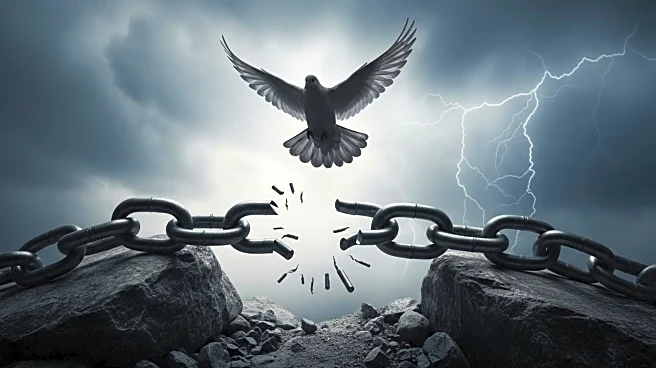What's Happening?
The Israeli military has declared Gaza City a 'dangerous combat zone' as it prepares for a major assault. This announcement follows the recovery of the body of one hostage and the remains of another in Gaza. The Israeli Defense Forces (IDF) have ceased tactical pauses in military activity, which were initially implemented for humanitarian purposes. The security cabinet has approved the occupation of Gaza City, leading to intensified military actions and forcing residents to flee deeper into the city. The humanitarian crisis in Gaza continues to worsen, with high population density and limited access to resources. The death toll has reached 63,025, with many deaths attributed to famine and malnutrition.
Why It's Important?
The escalation in Gaza represents a significant development in the ongoing Israel-Hamas conflict, impacting regional stability and international relations. The humanitarian crisis poses ethical and political challenges, with potential repercussions for global diplomatic efforts. The recovery of hostages' remains highlights the personal tragedies within the broader conflict, affecting families and communities. The situation may influence U.S. foreign policy and humanitarian aid strategies, as international pressure mounts for a resolution. Stakeholders, including political leaders and humanitarian organizations, face critical decisions regarding intervention and support.
What's Next?
The Israeli military's intensified operations in Gaza City are likely to continue, with potential for further civilian displacement and casualties. International reactions may include calls for ceasefires and humanitarian aid, as well as diplomatic negotiations to address the crisis. The recovery of hostages' remains may lead to increased efforts to locate and rescue remaining hostages. The situation remains fluid, with potential for further escalation or diplomatic breakthroughs.










